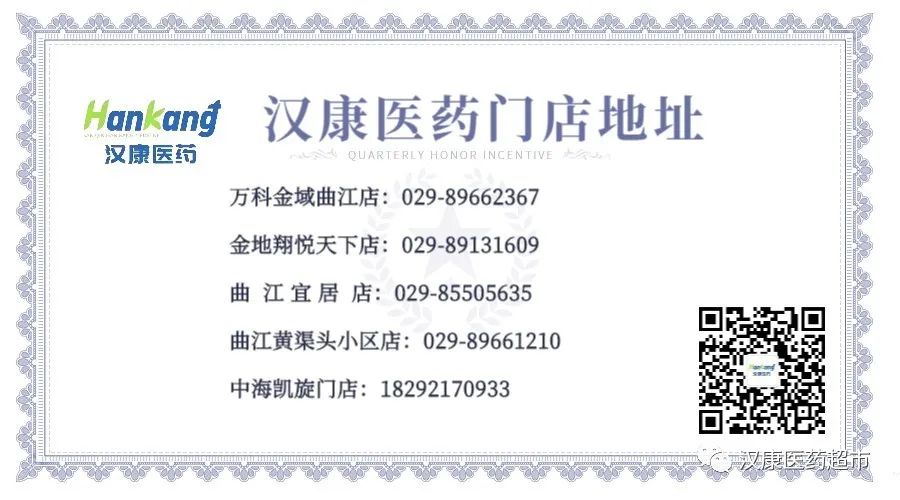Today marks the 2987th day of Han Kang Medicine accompanying you.
In the world of Traditional Chinese Medicine (TCM), describing a person’s physical weakness is often expressed with the term “deficiency” (虚). For instance, in historical dramas, doctors typically diagnose patients with terms like “Qi deficiency” (气虚) or “Blood deficiency” (血虚).So, how much do you know about the “Four Deficiencies” in TCM?1. Qi DeficiencyQi deficiency refers to a lack of vital energy in a person.In TCM, vital energy (元气, yuan qi) is the fundamental life force that enables various organs in the body to function properly.If this energy is insufficient, the body is prone to various ailments.If we compare the human body to a car, then vital energy is the fuel and the engine, the core and indispensable element.Since Qi is stored in the five organs, Qi deficiency often includes types such as Lung Qi deficiency (肺气虚), Spleen Qi deficiency (脾气虚), Kidney Qi deficiency (肾气虚), Liver Qi deficiency (肝气虚), and Heart Qi deficiency (心气虚).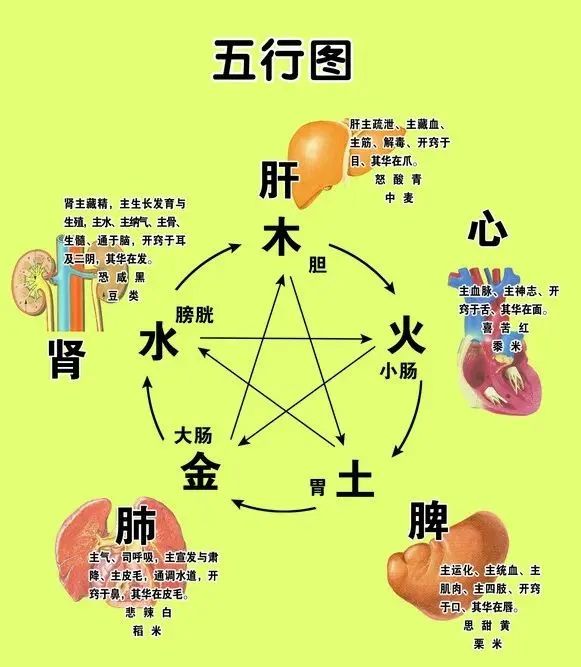 Qi deficiency is generally caused by excessive fatigue, prolonged illness, or organ weakness.Patients with Qi deficiency often experience physical weakness, fatigue in the limbs, dizziness, and headaches, and they tend to speak softly and less frequently.
Qi deficiency is generally caused by excessive fatigue, prolonged illness, or organ weakness.Patients with Qi deficiency often experience physical weakness, fatigue in the limbs, dizziness, and headaches, and they tend to speak softly and less frequently.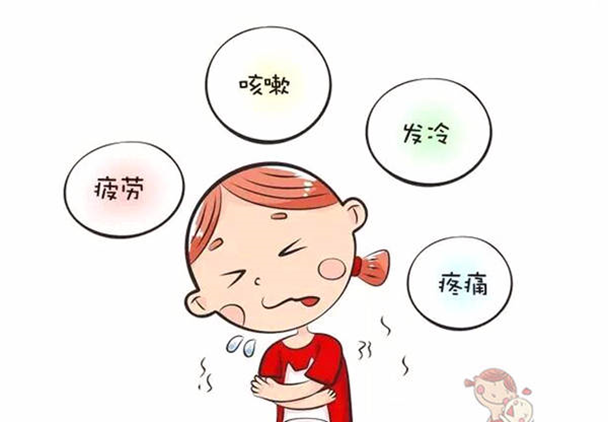 1. Lung Qi Deficiency::The lungs govern Qi, control respiration, connect with the skin, and regulate water pathways.When Lung Qi is deficient, its functions of dispersing and descending, regulating respiration, managing fluid metabolism, and resisting external pathogens become weakened.Symptoms may include shortness of breath, spontaneous sweating, weak voice, cough with wheezing, chest tightness, susceptibility to colds, and even edema or difficulty urinating.Lung Qi deficiency requires the use of TCM formulas that tonify Lung Qi, commonly including Yu Ping Feng San (Jade Windscreen Powder), Bu Zhong Yi Qi Tang (Tonify the Middle and Augment the Qi Decoction), and Shen Ling Bai Zhu San (Ginseng, Poria, and Atractylodes Powder).
1. Lung Qi Deficiency::The lungs govern Qi, control respiration, connect with the skin, and regulate water pathways.When Lung Qi is deficient, its functions of dispersing and descending, regulating respiration, managing fluid metabolism, and resisting external pathogens become weakened.Symptoms may include shortness of breath, spontaneous sweating, weak voice, cough with wheezing, chest tightness, susceptibility to colds, and even edema or difficulty urinating.Lung Qi deficiency requires the use of TCM formulas that tonify Lung Qi, commonly including Yu Ping Feng San (Jade Windscreen Powder), Bu Zhong Yi Qi Tang (Tonify the Middle and Augment the Qi Decoction), and Shen Ling Bai Zhu San (Ginseng, Poria, and Atractylodes Powder).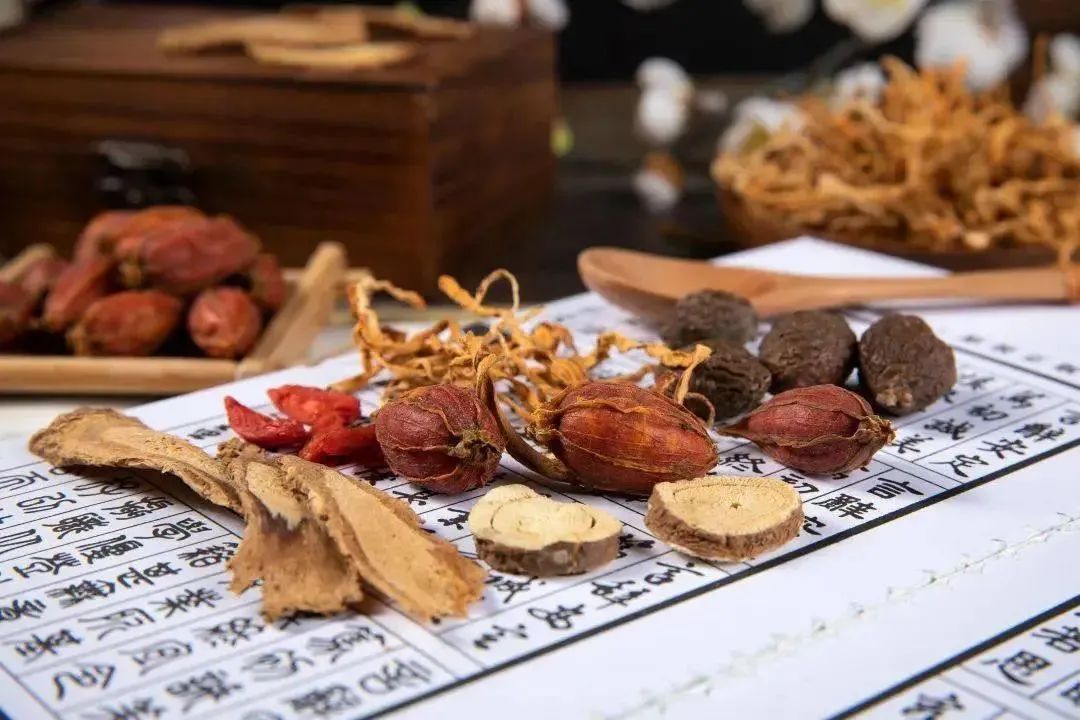 Additionally, herbs such as Sha Shen (Glehnia), Bai He (Lily Bulb), Sheng Di (Rehmannia), Mai Dong (Ophiopogon), Yu Zhu (Polygonatum), and Huang Qi (Astragalus) can be brewed in water to nourish Qi and Yin.2. Kidney Qi Deficiency:The kidneys reside in the lower back, store essence, and control the opening and closing of the two Yin organs.Essence nourishes the five organs and ascends to the brain.When Kidney Qi is deficient, it fails to nourish, leading to symptoms such as fatigue, dizziness, forgetfulness, weakness in the lower back and knees, frequent clear urination, and pale tongue with weak pulse.If the kidneys fail to receive Qi, breathing may become shallow and rapid.Common TCM formulas for treating Kidney Qi deficiency include Jin Gui Shen Qi Wan (Golden Cabinet Kidney Qi Pill), You Gui Wan (Right Return Pill), Gui Fu Di Huang Wan (Cinnamon and Rehmannia Pill), Fu Zi Li Zhong Wan (Aconite and Ginseng Pill), Jin Lu Wan (Golden Deer Pill), Cong Rong Bu Shen Wan (Cistanche Kidney Tonifying Pill), Jin Shui Bao (Golden Water Treasure), and Zhen Wu Tang (True Warrior Decoction).
Additionally, herbs such as Sha Shen (Glehnia), Bai He (Lily Bulb), Sheng Di (Rehmannia), Mai Dong (Ophiopogon), Yu Zhu (Polygonatum), and Huang Qi (Astragalus) can be brewed in water to nourish Qi and Yin.2. Kidney Qi Deficiency:The kidneys reside in the lower back, store essence, and control the opening and closing of the two Yin organs.Essence nourishes the five organs and ascends to the brain.When Kidney Qi is deficient, it fails to nourish, leading to symptoms such as fatigue, dizziness, forgetfulness, weakness in the lower back and knees, frequent clear urination, and pale tongue with weak pulse.If the kidneys fail to receive Qi, breathing may become shallow and rapid.Common TCM formulas for treating Kidney Qi deficiency include Jin Gui Shen Qi Wan (Golden Cabinet Kidney Qi Pill), You Gui Wan (Right Return Pill), Gui Fu Di Huang Wan (Cinnamon and Rehmannia Pill), Fu Zi Li Zhong Wan (Aconite and Ginseng Pill), Jin Lu Wan (Golden Deer Pill), Cong Rong Bu Shen Wan (Cistanche Kidney Tonifying Pill), Jin Shui Bao (Golden Water Treasure), and Zhen Wu Tang (True Warrior Decoction).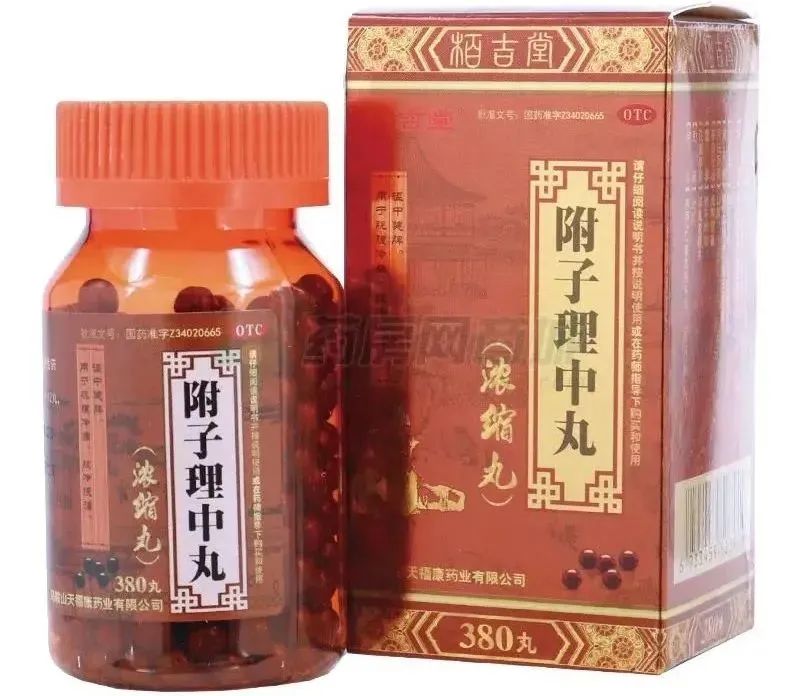 3. Spleen Qi Deficiency:The spleen is located in the middle jiao, governs transformation and transportation, and controls the ascending of clear Qi and the movement of blood.When Spleen Qi is weak, it cannot transform food and fluids effectively, leading to insufficient production of Qi and blood, resulting in symptoms such as reduced appetite, discomfort after eating, fatigue, weight loss, loose stools, pale complexion, thin white tongue coating, and weak pulse.Common TCM formulas for Spleen Qi deficiency include Ren Shen Jian Pi Wan (Ginseng Spleen Strengthening Pill), Ren Shen Gui Pi Wan (Ginseng and Astragalus Spleen Nourishing Pill), Shen Ling Bai Zhu San (Ginseng, Poria, and Atractylodes Powder), Bu Pi Yi Chang Wan (Spleen and Intestine Nourishing Pill), Liu Jun Zi Wan (Six Gentlemen Pill), Xiang Sha Liu Jun Zi Wan (Aromatic and Digestive Six Gentlemen Pill), Bu Zhong Yi Qi Wan (Tonify the Middle and Augment the Qi Decoction), Xiang Sha Yang Wei Wan (Aromatic and Digestive Stomach Nourishing Pill), Si Shen Wan (Four Spirit Pill), Xiao Yao Wan (Free and Easy Wanderer Pill), Jia Wei Xiao Yao Wan (Modified Free and Easy Wanderer Pill), Mu Xiang Shun Qi Wan (Aromatic Qi Regulating Pill), and Yu Ping Feng San (Jade Windscreen Powder), which can be adjusted as needed.
3. Spleen Qi Deficiency:The spleen is located in the middle jiao, governs transformation and transportation, and controls the ascending of clear Qi and the movement of blood.When Spleen Qi is weak, it cannot transform food and fluids effectively, leading to insufficient production of Qi and blood, resulting in symptoms such as reduced appetite, discomfort after eating, fatigue, weight loss, loose stools, pale complexion, thin white tongue coating, and weak pulse.Common TCM formulas for Spleen Qi deficiency include Ren Shen Jian Pi Wan (Ginseng Spleen Strengthening Pill), Ren Shen Gui Pi Wan (Ginseng and Astragalus Spleen Nourishing Pill), Shen Ling Bai Zhu San (Ginseng, Poria, and Atractylodes Powder), Bu Pi Yi Chang Wan (Spleen and Intestine Nourishing Pill), Liu Jun Zi Wan (Six Gentlemen Pill), Xiang Sha Liu Jun Zi Wan (Aromatic and Digestive Six Gentlemen Pill), Bu Zhong Yi Qi Wan (Tonify the Middle and Augment the Qi Decoction), Xiang Sha Yang Wei Wan (Aromatic and Digestive Stomach Nourishing Pill), Si Shen Wan (Four Spirit Pill), Xiao Yao Wan (Free and Easy Wanderer Pill), Jia Wei Xiao Yao Wan (Modified Free and Easy Wanderer Pill), Mu Xiang Shun Qi Wan (Aromatic Qi Regulating Pill), and Yu Ping Feng San (Jade Windscreen Powder), which can be adjusted as needed.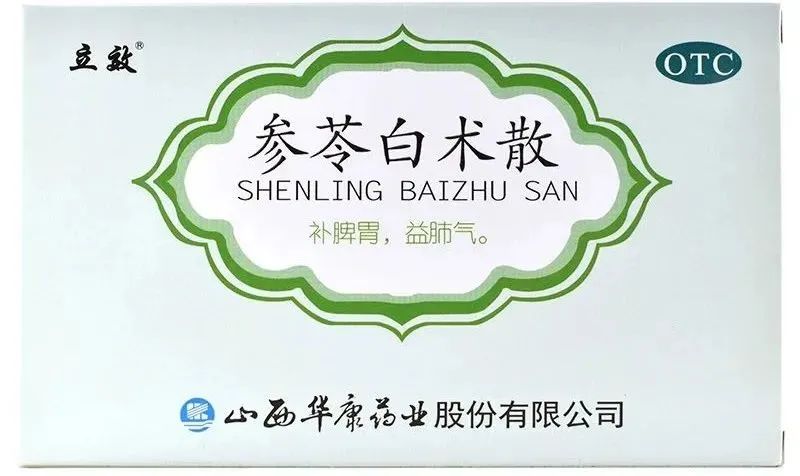 4. Heart Qi Deficiency:The heart governs blood vessels and houses the spirit.When Heart Qi is deficient, it cannot promote blood circulation or nourish the spirit, leading to symptoms such as palpitations, shortness of breath, excessive sweating, worsening with exertion, fatigue, pale tongue, and weak pulse.Common medications for Heart Qi deficiency include Bai Zi Yang Xin Wan (Biota Heart Nourishing Pill), Bu Zhong Yi Qi Wan (Tonify the Middle and Augment the Qi Decoction), Qi Xue He Jiao Nang (Qi and Blood Harmonizing Capsules), and Huang Qi Granules (Astragalus Granules).
4. Heart Qi Deficiency:The heart governs blood vessels and houses the spirit.When Heart Qi is deficient, it cannot promote blood circulation or nourish the spirit, leading to symptoms such as palpitations, shortness of breath, excessive sweating, worsening with exertion, fatigue, pale tongue, and weak pulse.Common medications for Heart Qi deficiency include Bai Zi Yang Xin Wan (Biota Heart Nourishing Pill), Bu Zhong Yi Qi Wan (Tonify the Middle and Augment the Qi Decoction), Qi Xue He Jiao Nang (Qi and Blood Harmonizing Capsules), and Huang Qi Granules (Astragalus Granules).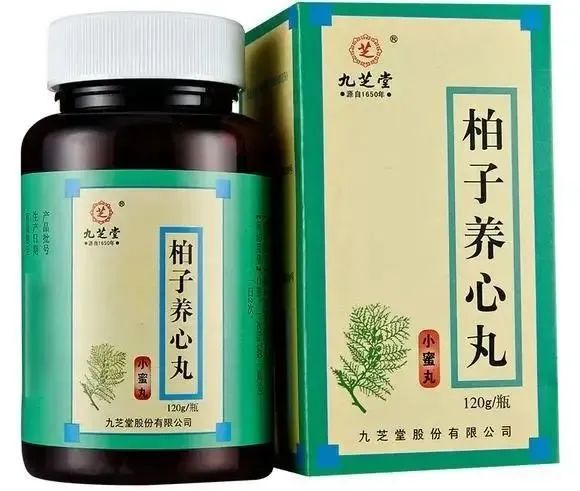 2. Yin Deficiency:Yin deficiency refers to insufficient Yin fluids.When the body is in a state of excess Yang, it often exhibits symptoms of Yin deficiency, similar to how excessive sunlight can dry up water.Individuals with Yin deficiency are particularly prone to heat, which can cause abnormalities in multiple organs such as the heart, lungs, kidneys, stomach, and spleen.Common symptoms of Yin deficiency include dryness, restlessness, rapid breathing, flushed complexion, irritability, and in severe cases, diseases due to fluid depletion.Therefore, for patients with Yin deficiency, it is recommended to focus on nourishing Yin and replenishing fluids in their diet to calm the spirit and stabilize the mind.For supplementation, methods such as nourishing Yin, tonifying Yin, and supporting Yin should be employed, with herbs like Sheng Di (Rehmannia), Mai Dong (Ophiopogon), Yu Zhu (Polygonatum), Zhen Zhu Fen (Pearl Powder), Yin Er (Tremella), Dong Chong Xia Cao (Cordyceps), Shi Hu (Dendrobium), and Gui Ban (Tortoise Shell) being suitable.
2. Yin Deficiency:Yin deficiency refers to insufficient Yin fluids.When the body is in a state of excess Yang, it often exhibits symptoms of Yin deficiency, similar to how excessive sunlight can dry up water.Individuals with Yin deficiency are particularly prone to heat, which can cause abnormalities in multiple organs such as the heart, lungs, kidneys, stomach, and spleen.Common symptoms of Yin deficiency include dryness, restlessness, rapid breathing, flushed complexion, irritability, and in severe cases, diseases due to fluid depletion.Therefore, for patients with Yin deficiency, it is recommended to focus on nourishing Yin and replenishing fluids in their diet to calm the spirit and stabilize the mind.For supplementation, methods such as nourishing Yin, tonifying Yin, and supporting Yin should be employed, with herbs like Sheng Di (Rehmannia), Mai Dong (Ophiopogon), Yu Zhu (Polygonatum), Zhen Zhu Fen (Pearl Powder), Yin Er (Tremella), Dong Chong Xia Cao (Cordyceps), Shi Hu (Dendrobium), and Gui Ban (Tortoise Shell) being suitable.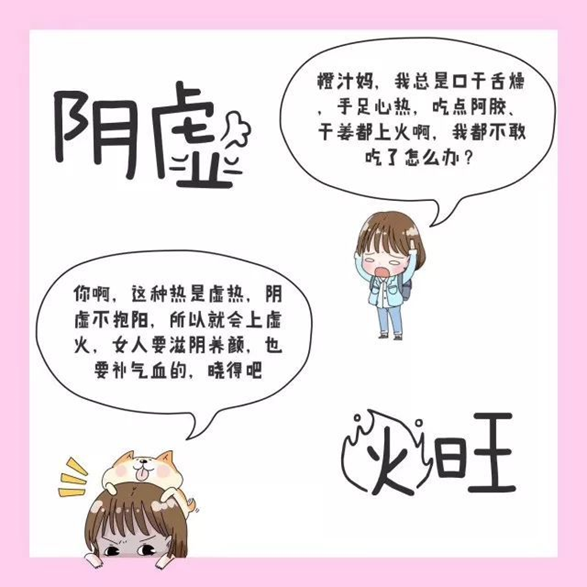 Manifestations:Include weight loss, dizziness, tinnitus, red lips, irritability, insomnia, tidal fever, night sweats, cough with blood, nocturnal emissions, or frequent dry heaving;Combination Suggestions:1. Bai Ju Hua (White Chrysanthemum) + Mai Dong, suitable for those who lack time for self-care, are frequently exposed to radiation from computers, phones, and televisions, and experience dry eyes and dizziness;2. Ren Shen Xu + Mai Dong + Ju Hua + Gou Qi Zi (Goji Berries) can clear the heart and quench thirst, improving summer heat and skin allergies;3. Ling Zhi (Reishi) + Lian Zi Xin (Lotus Seed Heart) + Xi Yang Shen (American Ginseng) can alleviate insomnia, spontaneous sweating, and tidal fever associated with menopause.Common TCM Formulas:1. Liu Wei Di Huang Wan (Six Flavor Rehmannia Pill), which nourishes Yin and tonifies the kidneys.It is used for Kidney Yin deficiency, dizziness, tinnitus, weakness in the lower back and knees, tidal fever, night sweats, and thirst.2. Zhi Bai Di Huang Wan (Anemarrhena and Rehmannia Pill), which nourishes Yin and clears heat. It is used for Yin deficiency with excess heat, tidal fever, night sweats, dry mouth and throat, tinnitus, and nocturnal emissions.3. Mai Wei Di Huang Wan (Ophiopogon and Rehmannia Pill), which nourishes the kidneys and lungs. It is used for Lung and Kidney Yin deficiency, tidal fever, night sweats, dry throat, dizziness, and tinnitus, and weakness in the lower back and knees.4. Zuo Gui Wan (Left Return Pill), which nourishes the kidneys and tonifies Yin. It is used for true Yin deficiency, weakness in the lower back and knees, night sweats, fatigue, and dry mouth.
Manifestations:Include weight loss, dizziness, tinnitus, red lips, irritability, insomnia, tidal fever, night sweats, cough with blood, nocturnal emissions, or frequent dry heaving;Combination Suggestions:1. Bai Ju Hua (White Chrysanthemum) + Mai Dong, suitable for those who lack time for self-care, are frequently exposed to radiation from computers, phones, and televisions, and experience dry eyes and dizziness;2. Ren Shen Xu + Mai Dong + Ju Hua + Gou Qi Zi (Goji Berries) can clear the heart and quench thirst, improving summer heat and skin allergies;3. Ling Zhi (Reishi) + Lian Zi Xin (Lotus Seed Heart) + Xi Yang Shen (American Ginseng) can alleviate insomnia, spontaneous sweating, and tidal fever associated with menopause.Common TCM Formulas:1. Liu Wei Di Huang Wan (Six Flavor Rehmannia Pill), which nourishes Yin and tonifies the kidneys.It is used for Kidney Yin deficiency, dizziness, tinnitus, weakness in the lower back and knees, tidal fever, night sweats, and thirst.2. Zhi Bai Di Huang Wan (Anemarrhena and Rehmannia Pill), which nourishes Yin and clears heat. It is used for Yin deficiency with excess heat, tidal fever, night sweats, dry mouth and throat, tinnitus, and nocturnal emissions.3. Mai Wei Di Huang Wan (Ophiopogon and Rehmannia Pill), which nourishes the kidneys and lungs. It is used for Lung and Kidney Yin deficiency, tidal fever, night sweats, dry throat, dizziness, and tinnitus, and weakness in the lower back and knees.4. Zuo Gui Wan (Left Return Pill), which nourishes the kidneys and tonifies Yin. It is used for true Yin deficiency, weakness in the lower back and knees, night sweats, fatigue, and dry mouth.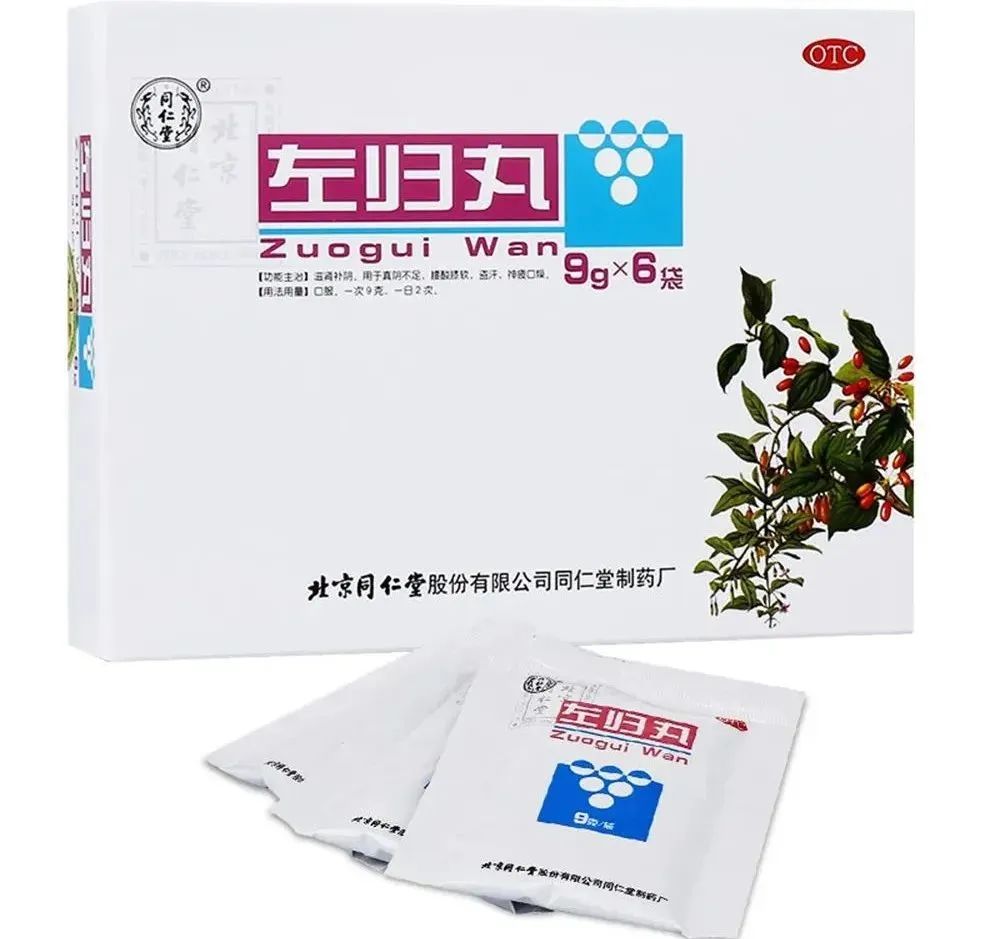 3. Yang Deficiency:Yang deficiency refers to weak Yang energy, which can be simply described as “insufficient sunlight.” Individuals with Yang deficiency often give off a gloomy, cold feeling.We all know that all living things on Earth depend on sunlight for nourishment; without it, life will perish from cold, and the human body is no different.Typical symptoms of Yang deficiency include aversion to cold, cold hands and feet, and lack of energy.Different organs may exhibit different manifestations of Yang deficiency.For instance, Kidney Yang deficiency may also present with lower back pain, weakness in the legs, impotence, and premature ejaculation;Heart Yang deficiency may present with palpitations, anxiety, and chest tightness.
3. Yang Deficiency:Yang deficiency refers to weak Yang energy, which can be simply described as “insufficient sunlight.” Individuals with Yang deficiency often give off a gloomy, cold feeling.We all know that all living things on Earth depend on sunlight for nourishment; without it, life will perish from cold, and the human body is no different.Typical symptoms of Yang deficiency include aversion to cold, cold hands and feet, and lack of energy.Different organs may exhibit different manifestations of Yang deficiency.For instance, Kidney Yang deficiency may also present with lower back pain, weakness in the legs, impotence, and premature ejaculation;Heart Yang deficiency may present with palpitations, anxiety, and chest tightness.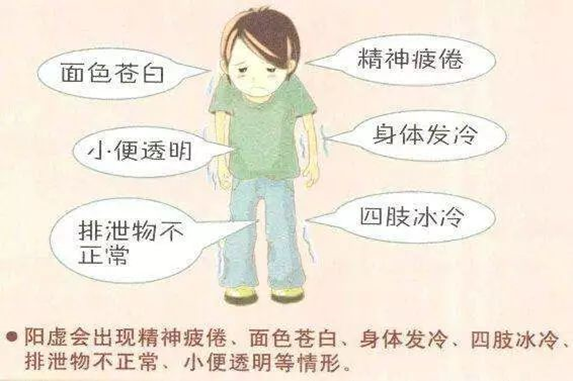 Common TCM Formulas:1. Jin Gui Shen Qi Wan (Golden Cabinet Kidney Qi Pill), which warms and tonifies Kidney Yang, transforms Qi, and promotes water metabolism. It is used for Kidney deficiency with edema, weakness in the lower back and knees, difficulty urinating, and cold intolerance.2. You Gui Wan (Right Return Pill), which warms and tonifies Kidney Yang, replenishes essence, and stops nocturnal emissions. It is used for insufficient Kidney Yang, decline of Mingmen fire, weakness in the lower back and knees, lack of energy, cold intolerance, impotence, nocturnal emissions, loose stools, and frequent clear urination.3. Si Shen Wan (Four Spirit Pill), which warms the kidneys, disperses cold, and stops diarrhea. It is used for diarrhea caused by insufficient Kidney Yang, with symptoms such as abdominal distension, early morning diarrhea, poor digestion, and persistent diarrhea, along with a pale complexion and cold extremities.
Common TCM Formulas:1. Jin Gui Shen Qi Wan (Golden Cabinet Kidney Qi Pill), which warms and tonifies Kidney Yang, transforms Qi, and promotes water metabolism. It is used for Kidney deficiency with edema, weakness in the lower back and knees, difficulty urinating, and cold intolerance.2. You Gui Wan (Right Return Pill), which warms and tonifies Kidney Yang, replenishes essence, and stops nocturnal emissions. It is used for insufficient Kidney Yang, decline of Mingmen fire, weakness in the lower back and knees, lack of energy, cold intolerance, impotence, nocturnal emissions, loose stools, and frequent clear urination.3. Si Shen Wan (Four Spirit Pill), which warms the kidneys, disperses cold, and stops diarrhea. It is used for diarrhea caused by insufficient Kidney Yang, with symptoms such as abdominal distension, early morning diarrhea, poor digestion, and persistent diarrhea, along with a pale complexion and cold extremities.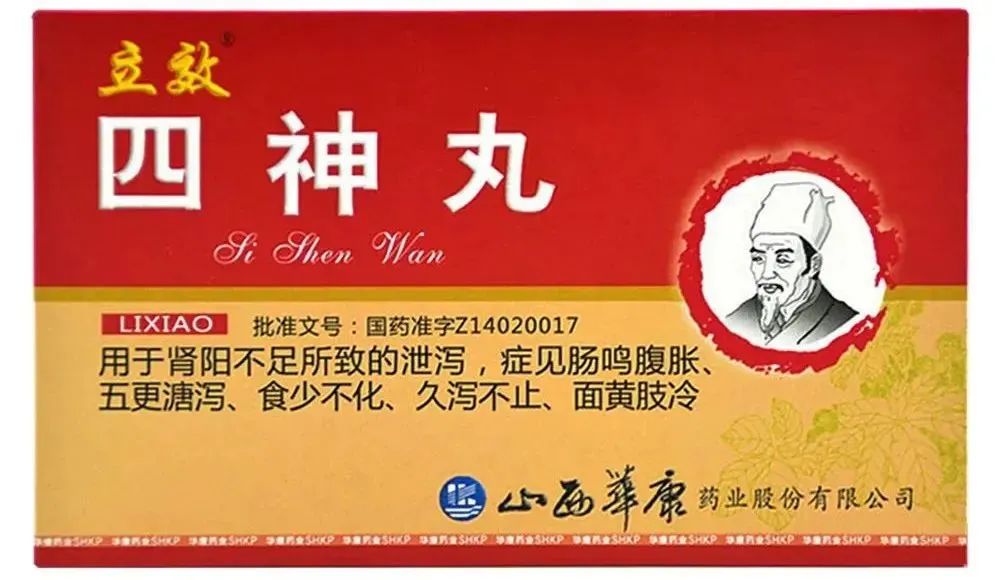 4. Ji Sheng Shen Qi Wan (Nourishing Life Kidney Qi Pill), which warms the kidneys, transforms Qi, and promotes water metabolism. It is used for Kidney Yang deficiency and internal dampness leading to edema, weakness in the lower back and knees, difficulty urinating, and cough with phlegm.4. Blood Deficiency:Blood deficiency refers to a lack of blood in the body.Blood serves as the carrier of nutrients; if blood is deficient, the body cannot receive adequate nourishment, leading to weakened organ function and a series of adverse symptoms.
4. Ji Sheng Shen Qi Wan (Nourishing Life Kidney Qi Pill), which warms the kidneys, transforms Qi, and promotes water metabolism. It is used for Kidney Yang deficiency and internal dampness leading to edema, weakness in the lower back and knees, difficulty urinating, and cough with phlegm.4. Blood Deficiency:Blood deficiency refers to a lack of blood in the body.Blood serves as the carrier of nutrients; if blood is deficient, the body cannot receive adequate nourishment, leading to weakened organ function and a series of adverse symptoms.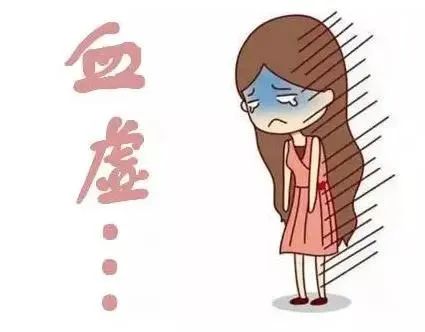 There are three main causes:First: Issues with blood production, such as prolonged fasting or abnormalities in the bone marrow responsible for hematopoiesis;Second: Excessive blood loss, such as frequent late nights or significant bleeding;Third: Obstruction in the pathways, such as blood stasis or clots that block blood flow, leading to blood deficiency in certain areas.Blood deficiency is more common in women, and patients typically exhibit pale complexion, cyanosis, numbness in the extremities, palpitations, and vivid dreams, with physiological symptoms such as scanty menstruation and shorter menstrual periods.For supplementation, methods such as nourishing blood, tonifying blood, and generating blood should be employed, with herbs like Dang Gui (Angelica), E Jiao (Donkey-hide Gelatin), Shu Di (Rehmannia), and Sang Shen Zi (Mulberry Fruit) being suitable.Common TCM formulas for blood deficiency include Si Wu Tang (Four Substance Decoction), a foundational formula for nourishing blood, which has functions of nourishing blood, invigorating blood circulation, and regulating menstruation. Dang Gui Bu Xue Wan (Angelica Blood Nourishing Pill) is used for physical weakness and deficiency of both Qi and blood.
There are three main causes:First: Issues with blood production, such as prolonged fasting or abnormalities in the bone marrow responsible for hematopoiesis;Second: Excessive blood loss, such as frequent late nights or significant bleeding;Third: Obstruction in the pathways, such as blood stasis or clots that block blood flow, leading to blood deficiency in certain areas.Blood deficiency is more common in women, and patients typically exhibit pale complexion, cyanosis, numbness in the extremities, palpitations, and vivid dreams, with physiological symptoms such as scanty menstruation and shorter menstrual periods.For supplementation, methods such as nourishing blood, tonifying blood, and generating blood should be employed, with herbs like Dang Gui (Angelica), E Jiao (Donkey-hide Gelatin), Shu Di (Rehmannia), and Sang Shen Zi (Mulberry Fruit) being suitable.Common TCM formulas for blood deficiency include Si Wu Tang (Four Substance Decoction), a foundational formula for nourishing blood, which has functions of nourishing blood, invigorating blood circulation, and regulating menstruation. Dang Gui Bu Xue Wan (Angelica Blood Nourishing Pill) is used for physical weakness and deficiency of both Qi and blood.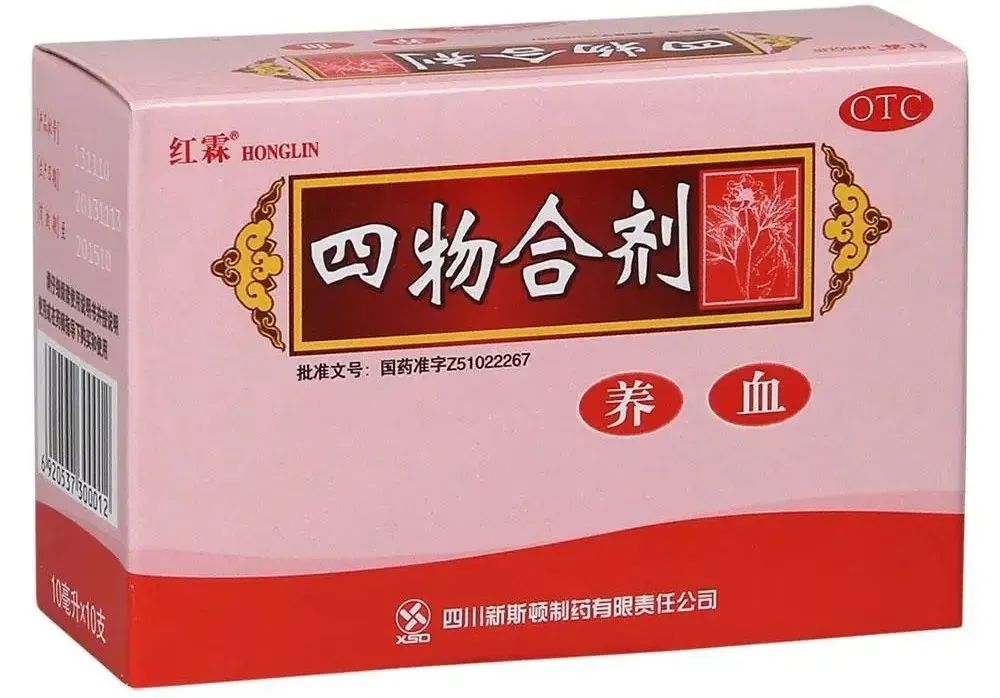 5. Dual Deficiency Body:Individuals with physical deficiency often exhibit dual deficiency, which can manifest in the following ways:1. Qi and Yin Dual Deficiency:This is a pathological change where Qi deficiency and Yin deficiency coexist, often seen in the course of febrile diseases where excessive heat damages Yin, leading to true Yin deficiency and subsequently harming vital energy.In addition to dry cough, individuals with Qi and Yin dual deficiency may also present with the following symptoms:Dry throat and mouth, irritability, excessive heat, red tongue.Afternoon tidal fever or night sweats, fever with aversion to clothing, hot palms and soles, or bone steaming tidal fever.Irritability, insomnia, vivid dreams, flushed cheeks, and night sweats.Dry mouth and throat, constipation, and dark yellow urine.Accompanied by recurrent oral ulcers, pain, dizziness, and weakness in the lower back.For supplementation, methods that nourish both Qi and Yin should be employed, considering both aspects simultaneously.The most commonly used TCM formula for Qi and Yin dual deficiency is Sheng Mai San (Generate the Pulse Powder), composed of three herbs: Ren Shen (Ginseng), Mai Men Dong (Ophiopogon), and Wu Wei Zi (Schisandra), though many now use Dang Shen (Codonopsis) instead of Ren Shen due to its neutral nature.Mai Men Dong has nourishing Yin properties, while Wu Wei Zi has astringent Yin properties; together, these three herbs are highly effective for treating Qi and Yin dual deficiency.
5. Dual Deficiency Body:Individuals with physical deficiency often exhibit dual deficiency, which can manifest in the following ways:1. Qi and Yin Dual Deficiency:This is a pathological change where Qi deficiency and Yin deficiency coexist, often seen in the course of febrile diseases where excessive heat damages Yin, leading to true Yin deficiency and subsequently harming vital energy.In addition to dry cough, individuals with Qi and Yin dual deficiency may also present with the following symptoms:Dry throat and mouth, irritability, excessive heat, red tongue.Afternoon tidal fever or night sweats, fever with aversion to clothing, hot palms and soles, or bone steaming tidal fever.Irritability, insomnia, vivid dreams, flushed cheeks, and night sweats.Dry mouth and throat, constipation, and dark yellow urine.Accompanied by recurrent oral ulcers, pain, dizziness, and weakness in the lower back.For supplementation, methods that nourish both Qi and Yin should be employed, considering both aspects simultaneously.The most commonly used TCM formula for Qi and Yin dual deficiency is Sheng Mai San (Generate the Pulse Powder), composed of three herbs: Ren Shen (Ginseng), Mai Men Dong (Ophiopogon), and Wu Wei Zi (Schisandra), though many now use Dang Shen (Codonopsis) instead of Ren Shen due to its neutral nature.Mai Men Dong has nourishing Yin properties, while Wu Wei Zi has astringent Yin properties; together, these three herbs are highly effective for treating Qi and Yin dual deficiency.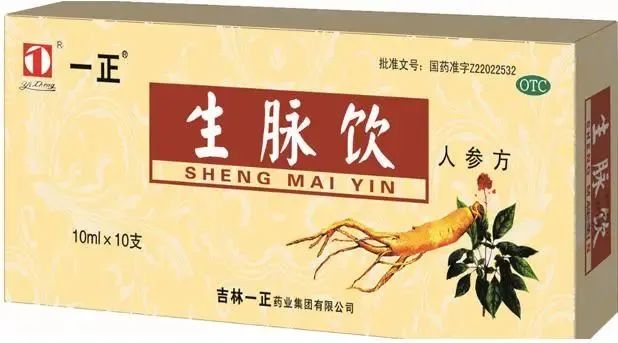 2. Yin and Yang Dual Deficiency:Symptoms of Yin and Yang dual deficiency include a combination of both, such as hot palms and soles in summer and cold hands and feet in winter; sometimes dry mouth and throat, sometimes sticky mouth with no desire to drink; sometimes constipation, sometimes loose stools, exhibiting both conditions.3. Qi and Blood Dual Deficiency:Qi and blood dual deficiency generally occurs in conditions such as anemia, leukopenia, thrombocytopenia, significant blood loss, or excessive menstruation in women.Main manifestations include:Exhibiting both Qi deficiency and blood deficiency symptoms, supplementation should focus on nourishing Qi and generating blood, with methods that tonify both Qi and blood.Many medications are available for treating Qi and blood dual deficiency, including Ba Zhen Granules (Eight Treasure Granules), Fu Fang E Jiao Jiang (Compound Donkey-hide Gelatin Syrup), Donkey-hide Gelatin Blood Nourishing Powder, Shi Quan Da Bu Wan (Ten Complete Great Tonifying Pill), Ren Shen Yang Rong Wan (Ginseng Nourishing Pill), Dang Gui Bu Xue Wan (Angelica Blood Nourishing Pill), Si Jun Zi Wan (Four Gentlemen Pill), Liu Jun Zi Wan (Six Gentlemen Pill), Qi Xue Shuang Bu Oral Liquid (Qi and Blood Dual Nourishing Oral Liquid), and Bu Zhong Yi Qi Granules (Tonify the Middle and Augment the Qi Granules), among others.In daily supplementation, it is advisable to consume more foods like red dates and longan.For dual deficiency bodies, dietary supplementation should be tailored to the specific needs of Qi, blood, Yin, and Yang, adjusting according to the severity of deficiency.Once the symptoms of deficiency disappear and health is restored, supplementation should be stopped, and a normal balanced diet should be maintained.It is essential to adhere to the principle of “supplement when deficient, drain when excessive,” avoiding unnecessary supplementation when not deficient, to prevent adverse reactions from excessive or inappropriate supplementation.
2. Yin and Yang Dual Deficiency:Symptoms of Yin and Yang dual deficiency include a combination of both, such as hot palms and soles in summer and cold hands and feet in winter; sometimes dry mouth and throat, sometimes sticky mouth with no desire to drink; sometimes constipation, sometimes loose stools, exhibiting both conditions.3. Qi and Blood Dual Deficiency:Qi and blood dual deficiency generally occurs in conditions such as anemia, leukopenia, thrombocytopenia, significant blood loss, or excessive menstruation in women.Main manifestations include:Exhibiting both Qi deficiency and blood deficiency symptoms, supplementation should focus on nourishing Qi and generating blood, with methods that tonify both Qi and blood.Many medications are available for treating Qi and blood dual deficiency, including Ba Zhen Granules (Eight Treasure Granules), Fu Fang E Jiao Jiang (Compound Donkey-hide Gelatin Syrup), Donkey-hide Gelatin Blood Nourishing Powder, Shi Quan Da Bu Wan (Ten Complete Great Tonifying Pill), Ren Shen Yang Rong Wan (Ginseng Nourishing Pill), Dang Gui Bu Xue Wan (Angelica Blood Nourishing Pill), Si Jun Zi Wan (Four Gentlemen Pill), Liu Jun Zi Wan (Six Gentlemen Pill), Qi Xue Shuang Bu Oral Liquid (Qi and Blood Dual Nourishing Oral Liquid), and Bu Zhong Yi Qi Granules (Tonify the Middle and Augment the Qi Granules), among others.In daily supplementation, it is advisable to consume more foods like red dates and longan.For dual deficiency bodies, dietary supplementation should be tailored to the specific needs of Qi, blood, Yin, and Yang, adjusting according to the severity of deficiency.Once the symptoms of deficiency disappear and health is restored, supplementation should be stopped, and a normal balanced diet should be maintained.It is essential to adhere to the principle of “supplement when deficient, drain when excessive,” avoiding unnecessary supplementation when not deficient, to prevent adverse reactions from excessive or inappropriate supplementation.
